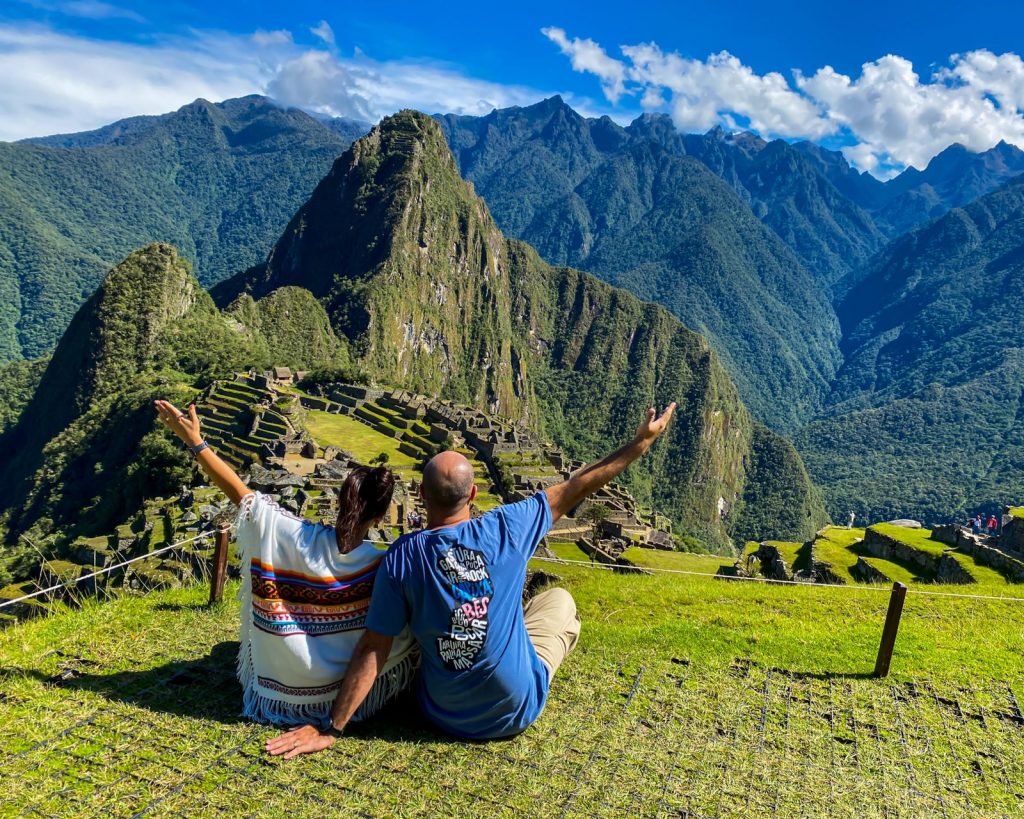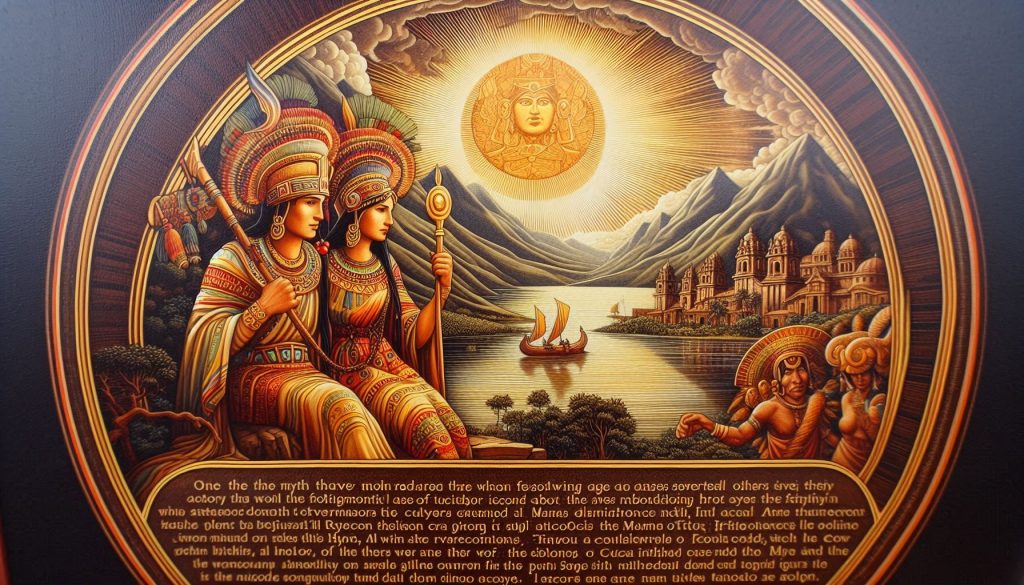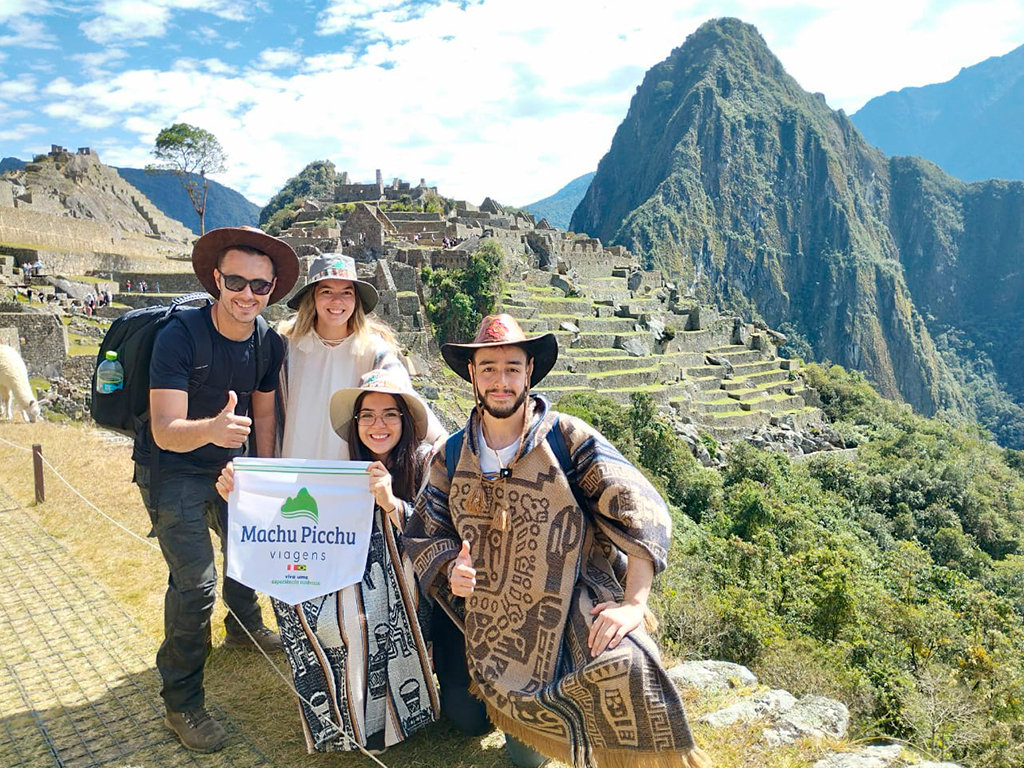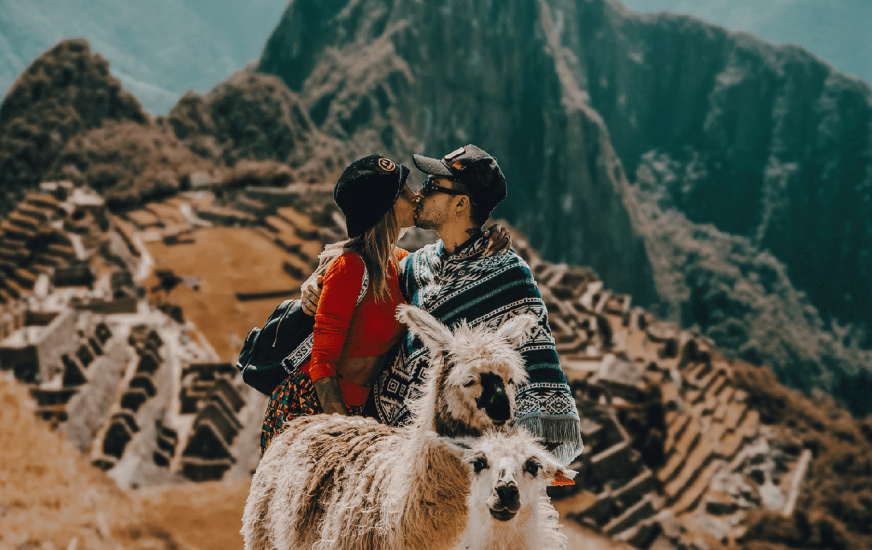Machu Picchu is considered one of the Seven Wonders of the Modern World, full of fascination and mysteries, this is the most visited attraction in Peru and one of the most visited in all of South America, receiving around 1.5 million tourists a year. ! This historic sanctuary is, without a doubt, a treasure left behind by one of the most intriguing civilizations that ever inhabited these lands, the Incas.
The ancient Inca citadel is located in the region of Cusco and is the closest destination to the city of Aguas Calientes, in the Sacred Valley of the Incas. There are countless ways to reach this archaeological site, ranging from luxurious train rides to immersion experiences in the Peruvian rainforest.

Machu Picchu holds mysteries, and enchantments that unite the past with the present, mixing nature with the concrete of its well-established constructions. No wonder, this place is a World Heritage Site, declared by UNESCO in 1983. If you are visiting Peru for the first time, this attraction should certainly be part of your itinerary.
Visiting Machu Picchu is going beyond knowing a simple tourist attraction, but getting in touch with a civilization rich in culture and mysticism, traits that are present in our people to this day. The energy of Machu Picchu will envelop you and every moment here will be worth it! Embark on this reading and learn about some of the curiosities and details of this wonder of the world.
The Incas and Machu Picchu: Rediscovering the Lost Citadel
As is already known, the citadel of Machu Picchu was built by the Inca civilization, which ruled the entire region between Colombia, Bolivia, Ecuador, Chile, and Argentina, with Cusco City being its capital. Despite this, the true purposes of its construction were never, in fact, discovered. Some theories indicate that this structure could have been a real compound, used as a residence and resting place for Inca Pachacutec.
While others point to the possibility that this would have been, in fact, a peaceful city, where people lived dedicated to agricultural activities, and handicrafts, such as ceramics and fabric production, in addition to carrying out their religious ceremonies in local temples. Although the assumptions indicate a full life in Machu Picchu, the entire structure was abandoned just 100 years after it was built, and the reasons for this action have never been clarified.

It’s interesting to point out that Machu Picchu was never directly related to the Spanish invasion. From this evasion event, the citadel is forgotten in time. History tells that Spanish conquerors, around 1532, looted the temples and buildings of Machu Picchu, however, they would not have been interested in remaining in the region, which was hidden for more than 200 years.
It was only in 1911 that the American explorer, Hiram Bingham, a professor at Yale University, arrived at the historic sanctuary, which was the target of his research and search for Peruvian lands. Upon finding Machu Picchu, which possibly never disappeared to the knowledge of the residents of the region, Bingham reveals it again to the world. This leap in the history of the historic sanctuary has earned it the famous nickname “the lost city of the Incas”.
Machu Picchu: Construction and Inca Engineering
One of the most well-known aspects of the Inca civilization is their admirable knowledge of engineering. Machu Picchu houses some of the most fascinating constructions of this culture, in addition to revealing its strategic thinking and focused on results that would remain stable in the long term, uniting knowledge about the behavior of nature.
In this citadel, there are buildings built entirely of stones, which were stacked and polished one by one, to fit and adapt perfectly. An interesting feature of these constructions is that their structures do not use any type of mortar to fix the pieces. In addition, the stones used as the base of the buildings were larger than the others, which allowed greater stability of the structures.

This detail was designed based on the fact that the Andes region has a great tendency to suffer from earthquakes, so this and other features of Machu Picchu were planned according to the power of nature. In addition to the buildings themselves, the entire terrain was designed to ensure greater stability in the event of earthquakes.
Thus, the Incas used the techniques of terraces and rainwater drainage, to make the land stable, to be able to grow food in agriculture, and to prevent soil erosion with the water being distributed through underground channels. In other words, Machu Picchu is a true spectacle in every aspect, from what is made by the hands of nature to the details planned and elaborated by the fascinating knowledge of the Incas.
Temples
Just as Machu Picchu has agricultural, administrative, and residential areas, there were also some temples in which religious ceremonies took place, most of which were dedicated to the Sun God. Therefore, there are some temples along with the archaeological site and in its vicinity. Some of the main ones are Intihuatana, Templo del Sol, Templo del Condor, and Templo de la Luna, situated on the Huayna Picchu mountain.
Intihuatana is a construction formed by four sides, representing the cardinal points, which functioned as a solar calendar for the Incas, indicating the solstices and equinoxes every year. The Temple of the Sun has windows that line up perfectly with the Sun during the summer solstice.

The Templo del Condor represents one of the most important figures within the Andean cosmovision, having been created to deal with fertility and agricultural production since it was believed that the condor’s wings attracted the rains that helped in agriculture.
The last one, the Templo de la Luna is hidden in the Huayna Picchu mountain and has restricted access, in this place mummification rituals were performed. Suppose you are interested in archaeological attractions that tell more about the history of the ancient peoples who inhabited these lands. In that case, it is possible to find other fascinating places in the middle of the Inca Trail, in addition to experiencing an incomparable adventure amid the beautiful landscapes of the Andes.
Machu Picchu Museum
In addition to all the beauties found in this experience in one of the most famous tourist attractions in South America, it is also possible to complement all the knowledge acquired and get more involved with the Inca culture by going to the Machu Picchu Museum, known as the Manuel Chávez Ballon Sitio Museum.

In the place, it is possible to find a collection of archaeological artifacts found in excavations made in the area that originate from the Inca times. Among the objects are tools, jewelry, parts, and even mummies, among other ancient objects. Each one of them narrates a bit of the whole story that happened there.
It is an ideal tour for those who like history and want to know more about the Inca culture. The Machu Picchu Museum is located at the beginning of the road that leads to the historic sanctuary and aims to tell you a little more about the history of this old mountain.
Huayna Picchu and other activities in the Sanctuary
This historic place also offers full adventures in addition to the classic visit to the citadel of Machu Picchu. Why not have a unique view of this incredible scenery from the top of a mountain? Choose your favorite one here. In the classic photos taken of this Peruvian tourist spot, it is possible to observe two mountains that star in the scenery with their majesty; on the right, you can see Machu Picchu mountain, while on the left is Huayna Picchu.
The first mountain rises 800 meters from the Inca citadel, reaching an altitude of 3,000 meters, and takes about 3 hours to complete the trail. The second reaches an altitude of just 300 meters above the structures of the historic sanctuary, taking only 1 hour to complete the journey. In any of them, the difficulty level is from moderate to challenging, and it is important to be well acclimatized and not afraid of heights to perform them.

The experience is certainly rewarded with an incredible and privileged view of this famous tourist attraction that is the dream of many people around the world. No worries about which adventure to choose, we can help you with tips about Machu Picchu or Huayna Picchu.
In addition to Machu Picchu, the entire region of Cusco has incredible tourist attractions that are worth visiting. To get to know this and many other fantastic places in the Inca ruins, it is important to understand the best Peru travel tips and we make sure to prepare you for the best adventures.
Viagens Machu Picchu has a specialized team always ready to offer you the best experience, so contact us, get to know our packages for one of the Seven Wonders of the World and we will plan your dream trip together, always thinking about your interests and needs.

